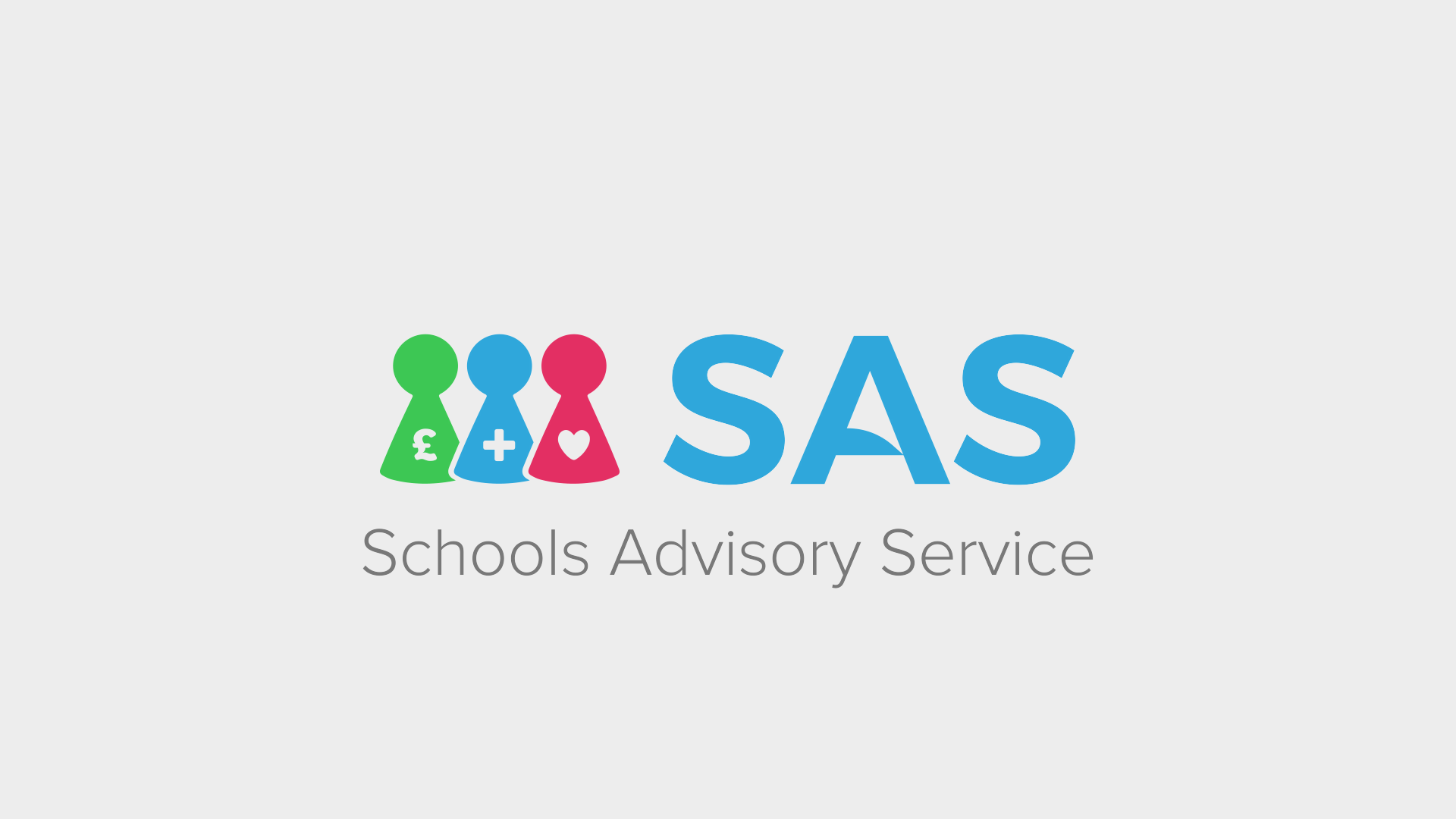
Scroll below to read and watch the full individual stories.
In May 2025, we visited The Rutland Learning Trust.
Whilst at one of their schools within the trust, we spoke to CEO, Rob Gooding, about their experiences with Schools Advisory Service. We recorded his response and created a case study to showcase his incredible efforts in supporting their Trust and how they use our services in their entirety.
I’m Rob Gooding, I’m the CEO of The Rutland Learning Trust. I’ve been here for just over 10 years, loved every minute of it. The highs, the lows, the things that have gone well, even the challenges we face, especially during COVID.
Before I started my career in education, I was an apprentice professional footballer. That allowed me to get into schools. I really started to enjoy that experience, which led to me becoming a teacher promoting to deputy headteacher. For my sins, I became an ofsted inspector for a while, then became the headteacher at one of the schools in the trust. Fortunately enough, we then developed a family of schools and with that collaboration, and federation, we then created the trust itself.
So across The Rutland Learning trust, we’ve now got 13, small rural primary schools across three different counties. All of the schools have their own unique characteristics. We’ve got one school that’s on a barracks, which is very different to a small rural church primary school.
Our vision is about working together, sustaining excellence and transforming learning. And that’s authentically lived. When parents visit, or teachers speak to us and say, “what’s the best thing about the trust?”, often they say our standards, as it’s always high, or Ofsted reports or our teaching curriculum.
Whilst all of those things are important to us, the most important thing to us is the relationships within the team and those relationships that we inculcate and nurture with each other on a daily basis. And if you walked onto the playground or you walked into the staff room, you’d see that our vision is authentically lived.
I think what makes us unique, is the DNA of the trust is all about building relationships. It’s the foundation of everything that we do. We’ve got a mantra across the trust that children and pupils come equal-first. I know that there’s the tired mantra that children must come equal-first. But, if you don’t look after your staff, the children can’t get the best deal. So if we can energise and make them fresh, then the children get the best deal. That’s our first USP.
Our second USP – although standards are relatively high across the trust, we believe in lifelong learning as well. We are trying to put systems and processes in place so that the children have got great lifelong skills, that when they go to Key Stage Three and Key Stage Four, they continue to thrive and continue to flourish. And we’ve got data to suggest that because we put those learning skills in place, our children make more progress in higher grades than most of the schools, because of the work that we do on character, relationships, nurture and development.
Another USP is that we authentically and deliberately ask our schools to retain their unique characteristics. We want them to be representative of their local community. We think that the best decision makers are the people who are in the school, in the community. So, we delegate quite a lot of responsibility to the schools, because they’re best placed to make the decisions. What we do is we put a supportive framework in the background to enable those decisions to be made.
We first heard about Schools Advisory Service when we were looking at renewing our contracts, and we were looking at a variety of different factors. It wasn’t just about value for money, although I do genuinely think SAS do provide great value for money. It was more than that, it was the additional services that they could provide that could enhance the things that we were doing in school.
What attracted us to SAS was the wellbeing package. The app that we use, there’s a lot of members of staff across the trust that keep telling me, “we’ve used the physio, we’ve used the doctor service, we’ve used the menopause training, we’ve used the counselling”. That’s just 3 or 4 of the 20 or 30 things that are available to us. The impact of that is staff are engaged, and it means those members of staff that potentially could have been off sick, are staying with us and still at school. So our attendance rates are really high.
It’s also a USP for yourself as a trust, isn’t it? It just gives you another indication that, the greatest strength in your trust are actually your staff, and you need to look after them. This is just another way of proving that, they do come equal-first with the children.
If you look after your staff, you don’t get many absences. I’ve worked in this organisation for 10 years as a trust, but 18 years as a leader. We don’t get many staff absences. We don’t get many staff leaving. But what we want to be able to do is if they do have a challenge at home, whether it’s a wellbeing challenge, mental health, or some issue with their children or physio, for example, we’ve got an opportunity to get them back to work and thrive as much as possible.
What’s been instrumental in our development here is the work that we did with Andy Mellor from SAS. We’ve completely reformed and reshaped our people strategy. And it means that previously we thought about gimmicks, but now we’ve got a really coherent, structured approach to what staff wellbeing means. We’ve got a people strategy in place, and we wouldn’t have been able to do that, or even consider doing that, before we started working with SAS.
Our trust business manager looked at a variety of different providers. We put a matrix together. We looked at costs because obviously budgets are really difficult at schools at the moment. That was a significant factor. But alongside that was ‘what additional services can SAS provide?’ that will enhance what we’ve got in school.
It was a combination of value for money, but also the quality of the service that we are provided. And when we talk about the quality of service provided, we did a staff engagement survey last year and some of the comments about SAS had been really positive, such as comments on the rapid response. People had been able to get a doctor’s appointment that previously they’d not been able to get to, or they’ve had 3 or 4 physiotherapy sessions within 3 or 4 weeks. The speed of response gives confidence and trust to the staff, and that’s what’s been really impressive.
My expectations of working with the SAS were twofold. First of all, will we fulfill our obligation to be able to cover the staff absences with the insurance? This aspect has turned out great, and we can do that.
In addition to that, it was about what services we were getting as a trust, over and above. So the wellbeing package, all of those sort of things, initially we dipped our toes into that, but then when we found that the responses from staff were really positive, that’s when our trust business manager got in contact with the SAS sales team, and we put a more structured and systematic approach in place. That’s what helped inform our people strategy so that we could make people aware of all of those bits and pieces. Last year, when staff had been using the services, only a third had accessed services because some of them were still apprehensive of using it. But now we’ve got systems and processes in place so that everyone can access it.
The absence protection is pivotal if you’ve got long term illness. Coming back to the wellbeing package, the idea is if you can access the wellbeing package, it enables the staff to get back to work quicker. Yes, we’ve saved some money and achieved that value for money and sustainability through the costs, the greater cost is the people being served well and then getting them back into school.
We’ve seen dozens of success stories. One governor accessed physiotherapy the day after learning about it in a meeting. Staff regularly access doctor appointments and other services, not just for themselves but for their families. It’s been transformative—speed, access, and recovery all improved.
In a competitive MAT environment, we need to be at our best. I live by a “1% better” mantra—I try to improve just a little every day. SAS has helped me do that personally, and across the trust. It’s been accessible, easy, and genuinely impactful.
Ultimately, SAS aligns with our mission: doing something intentionally brilliant for children. But we can’t do that without looking after staff. They’re our biggest strength.
Ultimately, SAS aligns with our mission: doing something intentionally brilliant for children. But we can’t do that without looking after staff. They’re our biggest strength.
The biggest benefit of working with SAS isn’t just value for money—it’s their role in shaping and strengthening our wellbeing strategy.
Would I recommend SAS? Absolutely. No hesitation, no reservations. Great value, great quality, and incredibly easy access to vital services.
If you are a customer of Schools Advisory Service and have been made aware of any of the services mentioned, please contact your Account Manager to speak about and receive documents on what is available to you.
If you are thinking about taking a policy out with us please, see our resources and brochures or contact our team.
